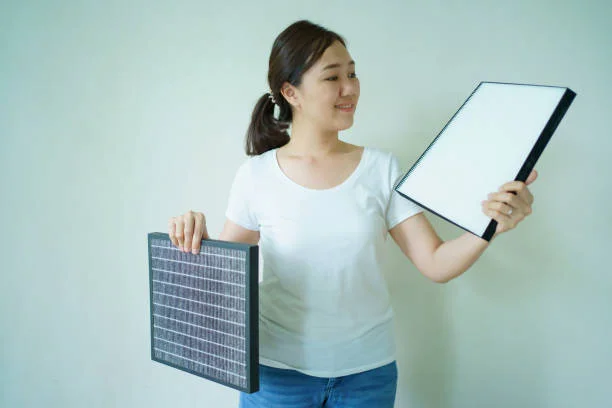Air conditioning systems are essential for comfort, particularly in regions with hot or humid climates. However, one element that often gets overlooked is the air filter. Air filters play a much larger role than just keeping dust out of your AC; they influence airflow, energy efficiency, indoor air quality, and the overall lifespan of the unit. A poorly chosen or neglected filter can lead to higher energy bills, mechanical breakdowns, and even health issues. On the other hand, selecting and maintaining the right filter can keep your system running smoothly for years. We will explore how choosing the right air filters can directly impact the health of your AC and why homeowners should take this aspect of maintenance more seriously.
Not your usual reads—click Related Post to uncover something extraordinary!
The Importance of Choosing the Right Air Filters for AC Health
1. Air Filters and Indoor Air Quality
The primary function of an air filter is to purify the air that circulates through your home. As your air conditioner operates, it pulls in air that often carries dust, pollen, pet dander, and even mold spores. A filter captures these particles and prevents them from re-entering your living space. The quality of the filter you choose makes a huge difference here. Basic fiberglass filters may catch larger dust particles but allow smaller irritants to pass through. Meanwhile, pleated or high-efficiency filters trap more allergens and microscopic particles, contributing to healthier indoor air.
In areas like Largo, where seasonal allergens and humidity can impact comfort, choosing the right filter becomes even more important. If you or your family members deal with allergies or respiratory conditions, the right filter can make your AC system more than just a comfort device—it becomes a line of defense for your health. Beyond personal comfort, this also reduces the amount of dust settling on furniture, electronics, and other household surfaces.
2. Impact on Energy Efficiency
Energy efficiency is another crucial factor influenced by the use of air filters. When an air filter becomes clogged or if the filter chosen restricts airflow too much, the air conditioning system has to work harder to push air through. This increases strain on the blower motor and results in higher energy usage. For example, neglecting to change a filter or selecting one that is too restrictive can result in significantly higher monthly utility bills. On the other hand, a clean, properly rated filter allows air to move freely, thereby reducing the workload on the AC. This means the system uses less power to maintain a comfortable indoor temperature. Over time, this not only reduces household energy expenses but also aligns with more environmentally conscious energy practices. Choosing the right filter is about finding a balance—one that traps contaminants without overburdening the system’s airflow.
3. Extending the Lifespan of the AC System
Your air conditioner is a long-term investment, and maintaining its health should be a priority. Filters act as the first line of protection for the system’s internal components, including the evaporator coil and blower fan. Without proper filtration, dirt and dust can accumulate within the system, resulting in reduced performance and potentially costly repairs. For instance, a dirty coil can prevent efficient heat exchange, causing the AC to cool less effectively. This often leads to longer run times, unnecessary wear, and eventual breakdowns. Replacing an entire system can be one of the most expensive home maintenance costs, so protecting it with the right filter is a simple but powerful step. By regularly replacing or cleaning filters and using the correct type, you reduce mechanical strain and extend the lifespan of your air conditioning unit, saving both money and stress in the long run.
4. Matching Filters to Your Home’s Needs
Not every home requires the same type of air filter, which is why choosing the right one depends on understanding your environment and lifestyle. For households without pets and with minimal dust, a lower MERV-rated filter (which measures filtration efficiency) might be sufficient. On the other hand, homes with pets, smokers, or individuals prone to allergies often need a higher-rated filter to capture smaller particles. It’s also important to consider the size and model of your AC unit, as not all systems can handle the same filter thickness or resistance. Choosing a filter with too high a rating may reduce airflow and harm the system, even though it captures more contaminants. Homeowners should carefully assess their specific needs rather than assuming that the most expensive filter is always the most effective. Matching the right filter to your circumstances ensures both cleaner air and a healthier system.
5. Maintenance Habits That Support AC Health
Even with the right filter, proper maintenance habits are essential. The most common issue is forgetting to replace filters on time. Many homeowners underestimate how quickly filters become clogged with dirt, especially during peak cooling seasons. A filter should typically be replaced every one to three months, depending on its type and the household conditions. Neglecting this simple task leads to reduced efficiency, higher utility bills, and even system malfunctions.
Additionally, filters should be inspected regularly for visible dirt buildup, discoloration, or damage. In reusable filter cases, thorough cleaning is equally important to ensure proper airflow. Consistent maintenance habits complement the choice of filter, creating a cycle of protection for the AC system. Making filter replacement part of your routine, much like changing batteries in smoke detectors, guarantees that your air conditioning remains both efficient and dependable throughout the year.
Air filters are far more than a minor accessory in your air conditioning system. They serve as the protectors of indoor air quality, the guardians of system efficiency, and the unsung heroes that prolong the life of expensive equipment. Selecting the right filter requires understanding your household’s specific needs, balancing filtration performance with airflow, and committing to consistent replacement or cleaning. By avoiding neglect and investing in proper filter care, homeowners ensure lower energy bills, fewer repairs, and a comfortable indoor environment all year long. Air filters may be small, but their role in AC health is monumental, making them a priority for anyone who values comfort, efficiency, and longevity.
Endless possibilities—click Explore More to find what you didn’t know existed!






